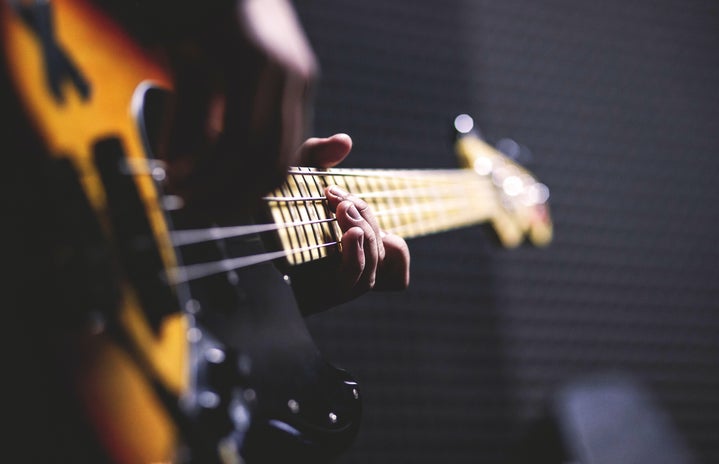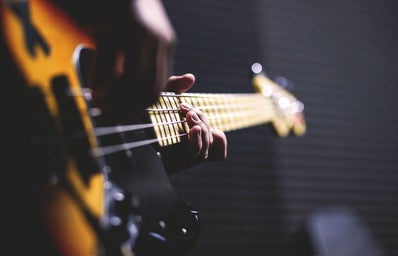Remember early 2020 (ahem, the very first coronavirus outbreak), when we all set out to learn new skills with so much time at home? I will shamelessly admit my part in this. From experimenting with graphic illustration to a brief stint being a plant mom to challenging myself to learn music production (a personal goal I will forever be grateful for), we’ve all become jacks of all trades in our own, weird and wonderful ways. Fast forward to 2022, I can’t really tell if it’s my genuine love of learning or the pandemic skill-learning instinct that’s possessed me once again, but I decided to finally pick up a bass guitar.
Excluding the many times in high school where I’d borrow a friend’s bass to mess around during a rehearsal, my knowledge of bass was practically nonexistent. After a while, I realized it’s high time I at least learned the basics. Recording from home, I’d often use my guitar to play bass parts or worse, use digital basses from software instrument libraries. Of course, none of these options are bad, considering being a musician is often synonymous with making the most with what is available, but it’s also good to work with the real deal.
Personally, I’ve always been drawn to the instrument, admiring the incredible playing of bassists like Flea, Kim Deal, Victoria Angelis, and Thundercat. However, coming from the more melodic world of violin and guitar, I gradually became aware of my misconceptions surrounding the bass (yes, there were many). For instance, playing bass is not easier than playing guitar. You might be fooled by lesser strings and the often “simple” role of electric basses in bands, but it’s no small feat to literally embody the bridge between melody and rhythm. Since bass is tied to rhythm, greater precision is needed, even if we’re talking about a simple bassline. The bass also adds a fuller sound to any mix, adding low frequencies that are often necessary to make for a more enjoyable listening experience. Let’s face it, many of the most iconic songs in historyーregardless of genreーwould just not be the same without bass.
I realized that picking up a groove (the rhythmic feel of a song that makes you want to move in time with the music) could be easy, but maintaining it definitely takes work. The mechanics of the instrument are also pretty different from the guitar’s, with thicker strings and a larger shape to get used to, especially for a person with small hands, such as myself; even with some very necessary stretches before playing, the instrument does take a toll on my fingers. Despite that often frustrating challenge, I’ve found myself playing a lot and becoming reacquainted with the perseverance and discipline needed for any new skill; musical or otherwise. I realized how useful it is to pick up a sound by ear and try to emulate it on an instrument, sans sheet music. Somehow, given the instrument’s groovier nature, I found it easier, or at least more convenient, to explore different rhythms.
As I’m still figuring things out, ups and downs included, I recognize that the bass guitar is a world of possibilities. Playing and practicing aside, it’s really inspiring to look at other beginning or experienced bassists sharing their progress with the world, and this applies to all instruments. TikTok, or should I say #basstok, has a huge library of amazing bassists, one of my faves being Bassrilia. Learning resources can also be found online through blogs and publications such as She Shreds Media, which has a complete section on learning, including an extremely useful guide for beginner bassists.
It’s truly refreshing to try out something new, and the experience has actually made me appreciate practicing even more. Although I’ve repeatedly asked myself why I didn’t try it out sooner, I’m incredibly glad that I did, as it challenges me musically and motivationally. On a personal note, trying out something I’ve been curious about for a long time has made me realize how we often assume things are harder than they actually are; you’d be surprised at what you can do. So, whether you’re looking to wield a four-stringed axe, or mastering any other skill, for that matter, just go for it. All it takes is perseverance.


